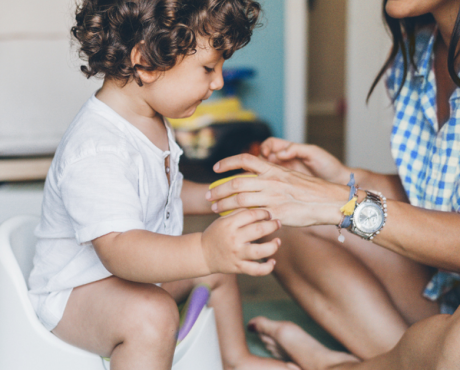
Cooking with your preschooler is more than just a fun activity — it’s a valuable learning experience that enhances your child’s development in a number of ways. At Little Bear’s Nursery, we encourage parents and caregivers to involve their little ones in the kitchen as often as possible. From developing motor skills to building confidence and introducing early maths concepts, cooking provides a wealth of opportunities for preschoolers to learn and grow.
In this blog, we will share tips on how to make cooking with your preschooler both enjoyable and safe. Plus, we’ve included some easy, child-friendly recipes that you can try together at home.
Why Cooking with Your Preschooler Is Important
Before diving into the practical aspects, it’s helpful to understand the benefits of cooking with your preschooler. Here are some of the key reasons why this shared activity is so valuable:
- Promotes Early Learning: Cooking introduces children to early maths and literacy skills. Whether it’s counting out ingredients, measuring with spoons and cups, or following simple instructions, the kitchen becomes a mini classroom.
- Develops Fine Motor Skills: Stirring, pouring, kneading, and cutting (with child-safe utensils) all help preschoolers develop their fine motor skills, which are crucial for tasks like writing, drawing, and using scissors.
- Encourages Healthy Eating Habits: Preschoolers are more likely to eat foods they’ve helped prepare. Cooking together allows you to introduce a variety of fruits, vegetables, and whole grains, making healthy eating fun and engaging.
- Boosts Confidence and Independence: Giving children age-appropriate tasks in the kitchen fosters a sense of accomplishment. They feel proud of their contribution to the family meal, which helps build their confidence and independence.
- Strengthens Bonding: Cooking provides a wonderful opportunity for bonding. It’s a chance to slow down, enjoy each other’s company, and share conversations that deepen your relationship with your child.

Safety Tips for Cooking with Preschoolers
While cooking with preschoolers is a rewarding experience, safety is a top priority. By following these simple tips, you can ensure that the time you spend in the kitchen is both safe and enjoyable.
- Create a Safe Kitchen Environment: Keep sharp objects, such as knives and graters, out of reach. Ensure all handles on pots and pans are turned inward on the hob to avoid accidental spills. If using a stovetop, explain that the area is hot and should not be touched. Designate a “child-safe” area where your preschooler can work without getting too close to hot surfaces.
- Use Child-Friendly Tools: Invest in kid-sized utensils, mixing bowls, and aprons. Child-safe knives, for example, are designed with blunt edges so preschoolers can practise chopping soft foods without the risk of cuts. Silicone baking moulds and wooden spoons are also great for little hands.
- Teach Proper Hygiene: Teach your preschooler about basic kitchen hygiene, such as washing hands before handling food and not touching their face or mouth while cooking. This is an important habit that will serve them well in the kitchen and beyond.
- Supervise at All Times: Always keep an eye on your child while they’re in the kitchen. Even with child-safe tools, accidents can happen, so close supervision is key.
- Emphasise the Importance of Clean-Up: Cooking with a preschooler can be messy! Use this as a learning opportunity by encouraging them to help clean up as they go. Wiping up spills and putting away ingredients teaches responsibility and keeps the kitchen tidy.
Age-Appropriate Cooking Tasks for Preschoolers
It’s important to assign tasks that are suitable for your preschooler’s age and skill level. This ensures that the experience remains enjoyable and not frustrating for them. Here are some age-appropriate tasks your preschooler can help with:
- Washing Fruits and Vegetables: Let your child rinse produce under cold water. This is an easy and safe task that helps them feel involved.
- Mixing Ingredients: Whether it’s stirring a salad or mixing batter for pancakes, this task is perfect for preschoolers. Just make sure the bowl is large enough to prevent spills.
- Pouring and Scooping: With a little guidance, your child can help pour pre-measured liquids or scoop flour and sugar into a bowl.
- Tearing and Breaking: Let them tear lettuce for salads or break up pieces of bread for stuffing or croutons.
- Sprinkling and Decorating: Allow your child to sprinkle herbs, cheese, or toppings onto a pizza or muffin mix. Decorating cookies or cupcakes is also a great task for budding chefs.
- Cutting Soft Foods: Using a child-safe knife, preschoolers can practise cutting soft fruits like bananas, strawberries, or cooked vegetables like courgettes.
Easy Recipes to Cook with Your Preschooler
Now that you’re ready to cook with your preschooler, here are a few simple and nutritious recipes you can try together. Each recipe involves tasks that your preschooler can help with, making mealtime preparation a fun and educational activity.
No-Bake Energy Bites
These no-bake energy bites are packed with healthy ingredients like oats, peanut butter, and flaxseeds. They’re easy to make and perfect for a quick snack or lunchbox treat.
Ingredients:
- 1 cup rolled oats
- 1/2 cup peanut butter (or any nut butter)
- 1/4 cup honey or maple syrup
- 1/4 cup ground flaxseeds
- 1/4 cup chocolate chips or raisins (optional)
- 1 tsp vanilla extract
Instructions:
- In a large mixing bowl, combine all the ingredients.
- Let your preschooler stir the mixture until well combined.
- Roll the mixture into small balls, allowing your child to help shape them.
- Chill the energy bites in the fridge for 30 minutes before serving.

Mini Vegetable Frittatas
These mini frittatas are a great way to sneak vegetables into your child’s diet. They’re fun to make and can be customised with your preschooler’s favourite veggies.
Ingredients:
- 6 eggs
- 1/4 cup milk
- 1/2 cup grated cheese
- 1/2 cup diced vegetables (such as bell peppers, spinach, or mushrooms)
- Salt and pepper to taste
Instructions:
- Preheat the oven to 180°C (350°F) and grease a muffin tin.
- Let your child help crack the eggs into a bowl, then whisk them together with the milk.
- Add the cheese, diced vegetables, salt, and pepper, and allow your preschooler to stir everything together.
- Pour the mixture into the muffin tin, filling each cup about two-thirds full.
- Bake for 15-20 minutes, or until the frittatas are set and golden brown.

Fruit and Yoghurt Parfait
This healthy fruit and yoghurt parfait is perfect for breakfast or as a tasty snack. It’s simple enough for your preschooler to make almost entirely on their own.
Ingredients:
- 1 cup plain yoghurt (or Greek yoghurt)
- 1 cup mixed berries (strawberries, blueberries, raspberries)
- 1/4 cup granola or crushed biscuits
- Honey (optional)
Instructions:
- In a clear glass or small bowl, have your child layer the yoghurt, berries, and granola.
- Repeat the layers until the glass is full.
- Drizzle with honey if desired, and serve immediately.

Homemade Pizza
Making homemade pizza is a fun, interactive meal that preschoolers love. Plus, it’s a great way to encourage them to eat vegetables by allowing them to choose their own toppings.
Ingredients:
- 1 pre-made pizza base (or flatbread)
- 1/2 cup tomato sauce
- 1 cup grated mozzarella cheese
- Various toppings: sliced vegetables, cooked chicken, pepperoni, etc.
Instructions:
- Preheat the oven to 200°C (400°F).
- Let your child spread the tomato sauce over the pizza base.
- Sprinkle cheese on top and allow your preschooler to add their chosen toppings.
- Bake for 10-15 minutes, or until the cheese is melted and bubbly.

Looking for more fun and easy recipes to try with your preschooler? Check out this BBC resource for more inspiration!
Cooking at Little Bear’s Nursery

At Little Bear’s Nursery, cooking together is part of our regular curriculum because it offers children a hands-on way to develop essential skills. From following instructions to measuring ingredients and counting, these activities help foster early maths and literacy abilities in a practical, engaging setting. Cooking also provides a wonderful opportunity to introduce preschoolers to new foods, encouraging them to try different tastes and textures in a fun and interactive way. By participating in these sessions, children learn the importance of healthy eating habits and develop a positive relationship with nutritious foods, laying the foundation for lifelong healthy choices.
Final Thoughts
Cooking with your preschooler is a fantastic way to nurture their curiosity, creativity, and skills in a fun, hands-on environment. By involving them in the kitchen, you’re not only helping them develop important life skills but also creating precious memories together. The simple tips and easy recipes in this guide are designed to make the process enjoyable, safe, and educational.
At Little Bear’s Nursery, we believe in fostering early learning through interactive, playful activities, and cooking is a perfect example of how learning and fun can go hand-in-hand. So, grab your aprons, head to the kitchen, and start cooking up some delicious dishes with your little chef today!


